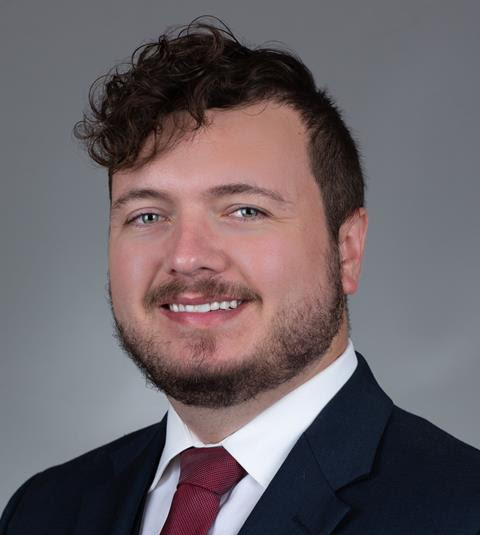
North Star: Thomas Ricks, IV, MD
STFM Member Thomas Ricks, IV, MD, is a resident at MUHC Family Medicine, Charleston, SC and has been an STFM member since 2021.
Thomas' Story:
During medical school, I would admire residents who had a wealth of knowledge, perhaps attainable, but far beyond my own. At the same time, attending physicians seemed to have unfathomable, almost magical, knowledge. While residency brought the former level of knowledge into focus, I now understand that medicine is an ever-evolving, moving target; it is a life-long learning process.
The best clinicians were often my most exemplary teachers, and I found myself more comfortable when teaching faculty were present. Teaching seemed to instill a confidence and assuredness in decisions that eschewed reticence, but these clinical teachers maintained a sense of humility and awareness of their limitations.
My mother was a special education teacher. Her father taught at the Mississippi School for the Blind. My paternal grandfather was a band director, as was his wife. His father taught collegiate algebra. Teaching was a family tradition; some would say, “it’s in my blood.”
During college, I worked as a research assistant in a chemistry lab; As a senior, I was a teaching assistant for Introduction to Biomedical Engineering. Academics is the only type of medical practice I’ve known for the past 7 years, aside from occasional, brief forays into the private practice world. When I imagine a career without constant opportunities to teach, it seems somewhat empty.
As chief resident, I’ve developed a list of inpatient teaching topics for interns, helped to implement a mostly resident-led morning report system, and worked to develop a point-of-care ultrasound curriculum, while revamping our academic half-day didactics schedule. These experiences have provided joy and fulfillment, and I wouldn’t want to practice medicine without having had them.
Growing up in rural Mississippi, the only physician I knew was our family doctor. He would care for all, from infants to older adults, and was the type of physician who could cast a bone on a high school football game sideline after seeing patients at the local assisted living facility; a physician who would do morning rounds at the county hospital before seeing patients in clinic all afternoon.
Our university medical center was a bastion of specialist care, and this type of physician seemed to be an ancient relic of a halcyon age for family medicine. I wanted something more in residency – a program and culture where family medicine was respected, not only for being a referral base for a multitude of specialists, but for its unique training to care for the entire person.
Across the country, each residency program has its own unique strengths. The best programs, however, have the insight to look to their peers and see where they’re being surpassed – to identify their inadequacies and formulate a plan to improve their own program. What works for a rural community-based program may not jive with the reality of an urban medical center; that’s where creative thinking can drive progress that would otherwise be stalemated. Moving forward, I hope to use my creativity to strengthen programs to benefit this already complex puzzle.
Contribute to the Creation of the Next STFM Story
Transforming the future of family medicine would not be possible without the generosity of countless STFM members and supporters. Through both member and departmental donations, the STFM Foundation is able to support STFM's priority to develop the pipeline for academic family medicine.
To transform the future of academic family medicine by donating to the STFM Foundation, click Make a Gift Today. If you have questions about the STFM Foundation, contact Mindy Householder at (800) 274-7928 or email mhouseholder@stfm.org.




